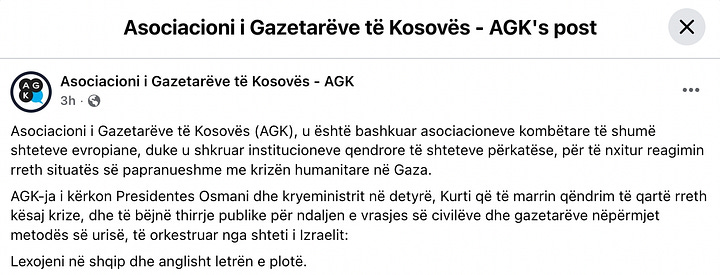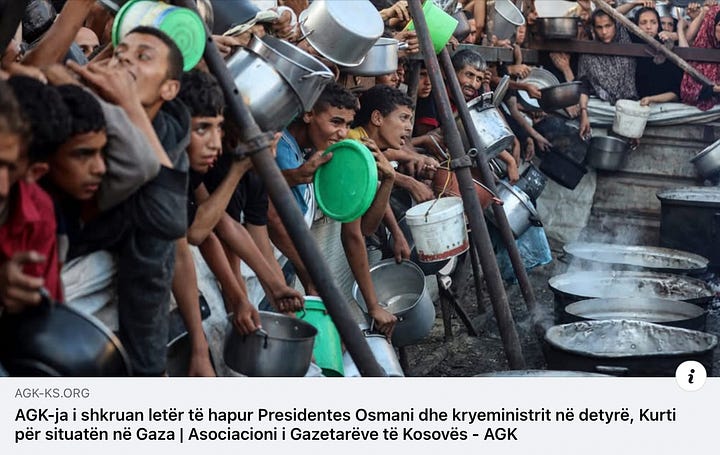Gaza and the AJK Cartel: Journalism for Sale
This isn’t solidarity. It’s a grotesque attempt to borrow moral capital from Gaza to whitewash decades of complicity in Kosovo.
This is a commendable reaction1.
The recent declaration by the Association of Journalists of Kosovo (AGK) in support of Gaza’s journalists and civilians, and its call for the Kosovar leadership to publicly denounce the humanitarian catastrophe orchestrated by the Israeli government, is, on its surface, a morally justifiable act. The Association’s alignment with European counterparts in urging international attention to the systematic starvation and targeted killings of journalists in Gaza is, in principle, commendable. The demand for a public stance from President Osmani and Acting Prime Minister Kurti may resonate with many across Kosovo who feel a deep solidarity with the Palestinian plight.
But that is precisely what makes this reaction so insidious.


Because it is not born of integrity. It is not rooted in a consistent commitment to human dignity, truth, or justice. It is not the act of an organisation that has proven itself to be a defender of journalistic ethics. Rather, it is the la…



